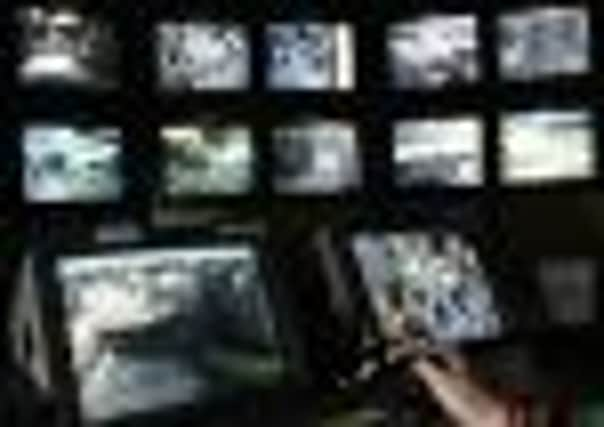Leaders: Time for a check on the industry of CCTV


Today that concern is ever more pressing. Far from a brake being put on the growth of CCTV, they have continued to spread across high street centres, public and private transport networks, commercial premises and neighbourhoods.
Scotland has experienced an astonishing growth in this surveillance – but with little evident check being carried out as to why ever more CCTV are being installed, their cost and their effectiveness in crime detection and prevention. The deeper issue at heart is the ever growing intrusion into the movements and activities of private citizens and the threat – real and potential – to our privacy.
Advertisement
Hide AdAdvertisement
Hide AdFigures obtained by The Scotsman have revealed that the network of CCTV monitoring in Scotland’s towns and cities has trebled in the past decade to more than 4,000 “public space” CCTV cameras and mobile camera vans. The total number of 4,114 cameras compares with a total of 3,115 uncovered in an FOI request 16 months ago. At this rate there will be little private space left in Scotland’s population areas, raising the spectre of a society almost totally monitored by cameras, many of them discreetly sited so that the public has no idea that it is being watched so intensely.
Some examples: Aberdeen has recorded the biggest jump in CCTV use, with the number of cameras rising to 680 from 482 the previous year. North Lanarkshire has 605 cameras. The total cost of CCTV operation across Scotland is put at £8.2 million.
The rationale for the growth in CCTV use is the role that such cameras play in crime prevention. CCTV evidence is seen as particularly effective in prosecutions where camera footage has been produced as evidence for court use. However, civil liberty groups are not so convinced that our streets are safer to walk at night, arguing that the public would be better served by better street lighting, more police officers on the beat – and tougher sentences on those found guilty.
But who is watching the watchmen? The case for a Holyrood inquiry into the use of CCTV now seems compelling. How else will we know whether councils and public bodies are getting value for money from the relentless growth in CCTV coverage?
There is also the deeper question of the infringement of privacy and the potential for CCTV systems to be abused. As Liberal Democrat leader Willie Rennie has pointed out, the Westminster government has regulated CCTV cameras to prevent inappropriate surveillance.
Considering that the potential for abuse is no less evident in Scotland, there is a powerful case for a similar calling to account here. Without it, the resort to ever more surveillance is set to spiral out of control.
Donors to declare on both sides
Central to public confidence in a “fair fight” in the independence referendum campaign is that major donors on both sides are identified – regularly and speedily. Here the Better Together organisation, which is campaigning to keep Scotland in the UK, has set the pace by revealing it has received donations totalling more than £1.1 million from 9,500 people since its launch last June – and it has named all individual donors of more than £500.
The contributor list is headed by oil trader Ian Taylor, of Vitol Oil who has donated more than £500,000. Other donors of more than £7,500 include author
Advertisement
Hide AdAdvertisement
Hide AdCJ Sansom, who gave £161,000, and engineering entrepreneur Alan Savage, who has given £100,000. However, the bulk of the donors gave less than £500, with 9,464 people giving a total of £173,385 – an average of £18:26 per person. Truly a case of people putting their money where their mouths are.
Now that Better Together has unveiled its financial supporters, there is pressure on the
YesScotland campaign to do the same. They say they will be making a similar statement soon, and they should be held to this promise. What will be of interest is whether, by the time they make this statement, they receive any of the money from two donations of around £1m made to the SNP from the late Scottish poet Edwin Morgan and Euromillions lottery winners Chris and Colin Weir.
Many small individual donations are likely to be accumulated by both sides over the coming months. The key point to ensure openness and transparency is that donations of more than £500 to either side are declared openly and regularly.